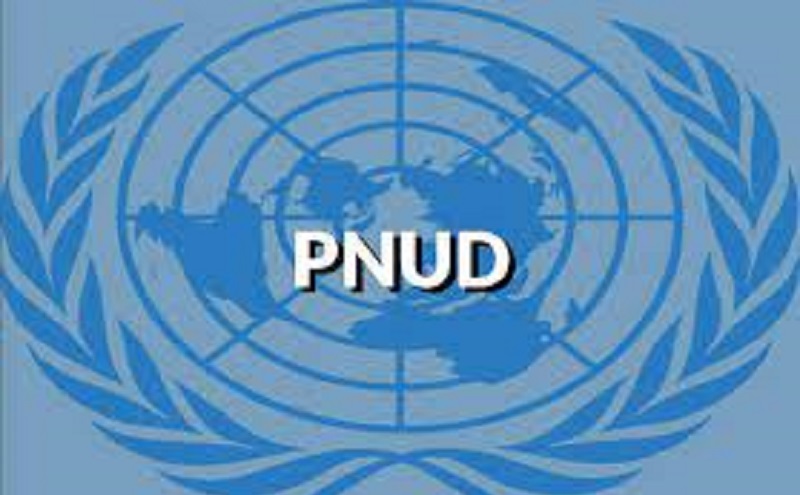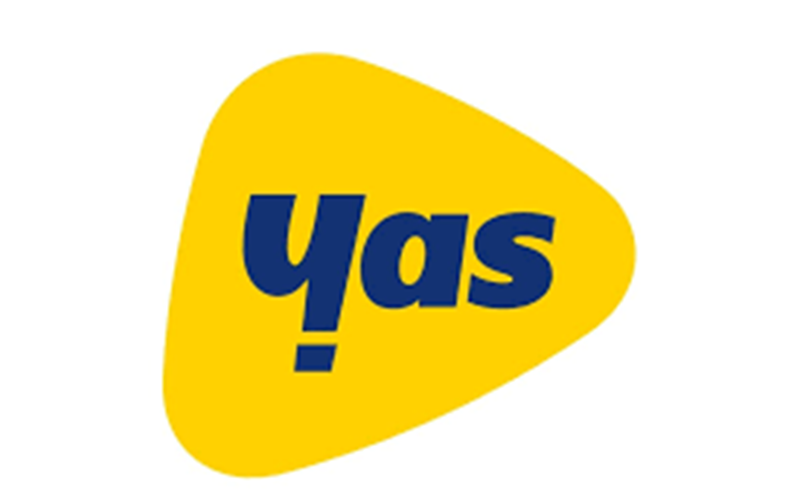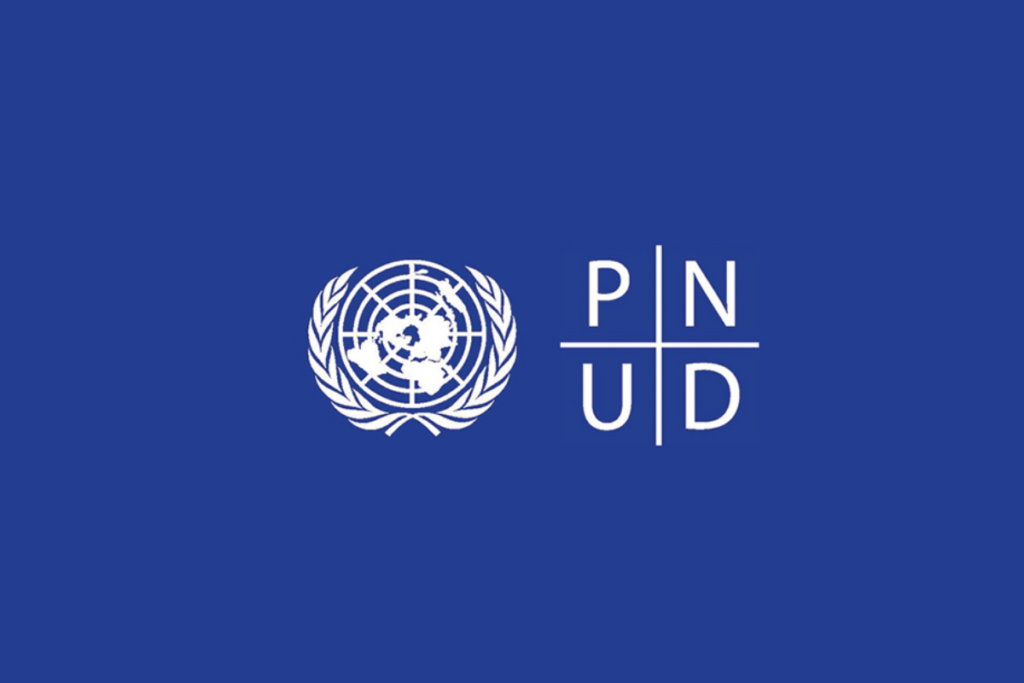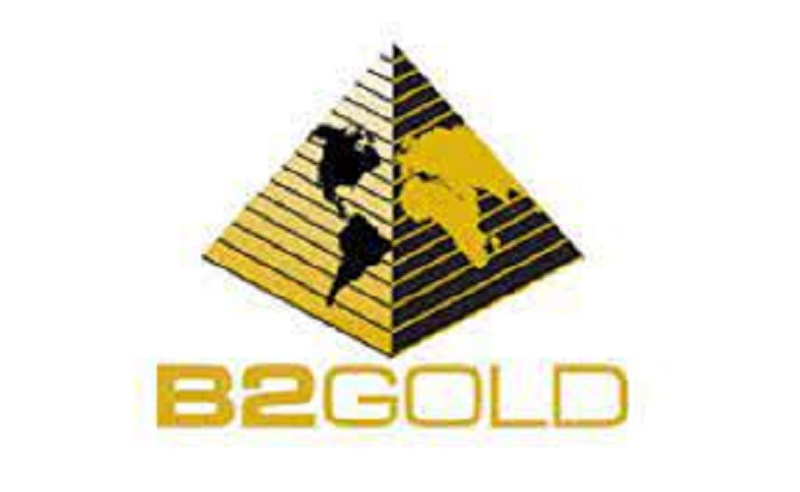L’objectif général du PNUD est de contribuer au développement humain durable . Le PNUD a quatre domaines d’intervention dans son mandat : la réduction de la pauvreté, la gouvernance démocratique, l’environnement et l’énergie, et la prévention des crises et le relèvement.
| RECRUTEMENT D’UN CONSULTANT NATIONAL EN CHARGE DE L’EVALUATION A MI-PARCOURS DU PROJET D’APPUI AU RENFORCEMENT DE LA TRANSPARENCE, DE LA REDEVABILITE ET DE LA LUTTE CONTRE LA CORRUPTION | ||
|---|---|---|
| Processus d’achat : | IC – Entrepreneur individuel | |
| Bureau : | Bureau de pays – SÉNÉGAL | |
| Date limite : | 05-Sep-22 | |
| Posté sur : | 18 août 22 | |
| Zone de développement : | CONSULTANTS | |
| Numéro de réference : | 94755 | |
| Lien vers le projet Atlas : 00092695 – PROJ RENF. INSTITUT. L’OFF NAT. LUT C/ FRAUDE & CORROMPU |
||
| Documents : PACTE RECRUTEMENT EVALUATEUR |
||
| Aperçu :
Nous vous prions de bien vouloir envoyer vos propositions (propositions techniques et financières) à l’adresse e-mail [email protected] avec mention de la référence et intitulé du dossier. Votre proposition devra être reçue au plus tard le 05/09/2022 à 15h00, heure de Dakar N’hésitez pas à écrire à l’adresse [email protected] pour toute information complémentaire. Les candidatures féminines sont vivement encouragées. Les Termes de Référence sont joints en annexe 01 de cette notice pour plus de détail sur la mission. Ils utilisent principalement le contexte de la mission, les responsables désignés à la mission, les produits attendus de la mission ainsi que le profil des candidats recherchés. |
||
Poste 2 : Head of Experimentation
- Kinshasa, Congo, The Democratic Republic of the
UNDP has begun incubating a number of strategic initiatives aimed at ensuring UNDP is ‘fit for purpose’ to deliver a new generation of solutions in line with the challenges the world faces. One such key strategic initiatives is the UNDP Accelerator Lab Network which operates as part of UNDP’s sustainable development offering.
You have a natural inclination to interdisciplinarity, cross cultural mindset and cross sectoral experience with the cosmopolitan attraction for diversity. You are driven by a strong sense of purpose and commitment to make change happen and a keen eye to identify emerging opportunities and ‘at the edge’ trends. You are open to discovery and exploration, capable of articulating insights and ideas through visual thinking, open to serendipity and discovery yet are pragmatic and constructive working with public sector authorities. You are comfortable with ambiquity, capable of zooming out for context and zooming in for content and execution- sharp in pursuit of objectives, fast at adapting and changing course when needed. You have superb compentencies in program and portfolio management, are at ease with decision-making processes and dynamics of different models of governance.
You are curious, a natural strategic thinker and a talented do-er. You understand systems, the good, the bad and the ugly, and are capable of working within bureaucracies to make change, leverage technology to extend, enhance and multiply exploration, discovery and execution. You are digitally savy, you hack tools, and you are keen to be a part of a large global organization exhibiting United Nations values.
The Accelerator Labs will be comprised of a core team with niche capabilities that focus on exploration, experimentation and grassroots innovation. Within the first 6-8 months of the Lab fully functioning, each member of the Core team will take the lead on one of the following functions:
- Coordination
- Training
- Communications
The Core team of the Accelerator lab will have capabilities in:
- Experimentation (instituting rapid learning about emerging challenges through design and running of a portfolio of experiments that is coherent with the type of challenges that are part of UNDP’s strategic plan, and
- Mapping Solutions: ethnographic methods and immersion in community dynamics, identification of and work with lead users, and implications of bottom up solutions for the policy design
Exploration: The exploration function focuses on discovery and sensemaking of emerging trends, implications for systemic impacts and risks, and their potential for accelerating progress toward SDGs. Its work feeds into the portfolio of experiments ensuring its coherence with the emerging risks and opportunities and connects local dynamics and solutions into the broader national and international ecosystem of potential funders, partners, and allies thereby increasing the chances for acceleration. While critical for the functioning of the Accelerator Lab, the exploration function will also service the Country Office as determined and agreed with the UNDP senior management
Duties and Responsibilities
Experiment portfolio design
- Works with UNDP and partners in mapping the context and nature of development challenges, with a particular focus on understanding systemic issues beyond traditional silos and classifications and identifying drivers of change, and levers for intervention
- Mapping systems and assets, identifying levers and logic for intervention, building hypotheses of change that are a fit to the system level challenges identified
- Identify logic against which to asses fit and coherence of the individual portfolios with the frontier challenges on which they are meant to generate learning
- Together with UNDP and development partners, coordinate portfolios of experiments to target multiple domains of complex problems.
Management of tests and experiments for sustainable development challenges
- Collaborate with UNDP colleagues and stakeholders on the design of experiments across to validate the hypotheses and test the effectiveness of identified prototypes, including (but not limit to) defining variables, formulating hypotheses, and coordinating experimental protocols
- Develop a framework to capture the learning from the experiments in such a way that it favours critical reflection and rapid adaptation over static reporting
- Provide technical guidance for experiment design, roll-out and validation based on the experiment conditions, resources available, and requirements
- Proactively manage risks within experiments including those related to ethics and privacy
- Examine the results from the testing of prototypes and translate them into proposals informing programmatic decisions on next steps and implications for improvement, spin offs and scaling-up, where warranted.
- Proactively use blog and social media to share findings from the experiments and portfolio implementation
- Help UNDP and partners disseminate insights from Accelerator lab experiments via social media platforms as a way to regularly reflect and engage with external audiences.
- Liaise with UNDP’s global Accelerator Lab network and share learnings and insights from the country-specific experience
- Jointly with the CO, support lab partners to develop an emerging pipeline of new initiatives, support other activities related to the design and operation of the Lab
- Design and deliver engaging and meaningful methods for reflection on learning from experiments
- Proactively use blog posts and social media to share insights, attract partners and help position Accelerator Lab at the forefront of the exploration of new trends.
- Lead other activities related to the design and operations of the Accelerator Lab
- Help embed a portfolio logic in clients’ work including the existing UNDP Country Programme (as determined and agreed with the senior management)
- Working with clients to encourage reflection and capturing of insights from individual experiments, as they related to the overall portfolio logic
- Work together with your Accelerator Lab colleagues and experts to codify and advance the Accelerator Lab practice and portfolio design in particular.
- Provide technical consultation and training for national partners and the CO through various phases including asset mapping, developing a strategic portfolio logic, experiment design, prototype testing, and evaluation;
- Design and deliver engaging and meaningful methods for reflection on learning from experiments
- Lead other activities related to the design and operations of the Accelerator Lab
- Achieve Results: LEVEL 2: Scale up solutions and simplifies processes, balances speed and accuracy in doing work
- Think Innovatively: LEVEL 2: Offer new ideas/open to new approaches, demonstrate systemic/integrated thinking
- Learn Continuously: LEVEL 2: Go outside comfort zone, learn from others and support their learning
- Adapt with Agility: LEVEL 2: Adapt processes/approaches to new situations, involve others in change process
- Act with Determination: LEVEL 2: Able to persevere and deal with multiple sources of pressure simultaneously
- Engage and Partner: LEVEL 2: Is facilitator/integrator, bring people together, build/maintain coalitions/partnerships
- Enable Diversity and Inclusion: LEVEL 2: Facilitate conversations to bridge differences, considers in decision making
- Business Direction and Strategy – System Thinking: Ability to use objective problem analysis and judgement to understand how interrelated elements coexist within an overall process or system, and to consider how altering one element can impact on other parts of the system
- Business Development – Knowledge Generation: Ability to research and turn information into useful knowledge, relevant for context, or responsive to a stated need
- Business Development – Human-centered Design: Ability to develop solutions to problems by involving the human perspective in all steps of the problem-solving process
- Digital & Innovation – Experimentation: Ability to design, run and manage tests to evaluate ideas, solutions, or interventions to address development challenges, observe and learn about (system-wide) effects and implications. Selecting appropriate experimentation methods, tools to fit with specific learning purposes (probe, trail & error, validate), conditions and constraints; being able to assess their potential risks, trade-offs and ethical ramifications. Ability to turn test results into recommendations, document and present them in compelling ways to inform further improvements, iterative development cycles, planning and decision making.
- Digital and Innovation – Collective Intelligence Design – Ability to design, lead or manage processes that help a collective to become smarter together by bringing together diverse groups of people, data, and technology. Ability to define and articulate why and how collective intelligence can add value to development programming (understanding problems; finding solutions; decision making and mobilising action; monitoring progress in real time, learning and adapting). Being able to integrate different types of data (realtime, ‘ground-truth’ and novel data) to unlock fresh insights. Understand guidelines and principles around data privacy, ethics and protection. Increase diversity of inputs – and look beyond the ‘usual suspects’, ability to navigate and manage a variety of actors, appreciate the diversity in perspectives, opinions, expertise. Ability to facilitate platforms or sessions where people can contribute by providing their views and ideas independently and freely. Being people-centred: ensure people understand and can determine how their data is used. Feed back inputs and insights to empower people, don’t extract data.
- Digital and Innovation – Story Telling – Ability to empathise with people’s perceptions, motivations, feelings and mental models and craft narratives to build an emotive argument for change accordingly. Ability to present data, insights or information in compelling ways to mobilise resources, talent or action. Ability to choose media and channels that is fit for purpose to reach specific target audiences.
- Master’s degree in Social Science, International Development, Environmental Science, Transition or Complexity Science, Engineering, Design (e.g. industrial or service design, architecture, urban planning), Psychology or a related area and minimum of 2 years of professional experience in development programming or policy; social innovation; partnership building; engagement (public and private sector) and/or resource mobilization OR
- Bachelor’s degree in Social Science, International Development, Environment Science, Engineering, Design (e.g. industrial or service design, architecture, urban planning), Psychology or related area and minimum of 4 years of professional experience in development programming or policy; social innovation; partnership building; engagement (public and private sector) and/or resource mobilization
Experience:
- Proven professional knowledge and experience in social innovation approaches such as Systems Thinking, Behavioral Insights, Qualitative and Quantitative User Research, Co-creation, Prototyping, Lean Startup, Design Thinking, Data Empowerment, and Collective Intelligence
- Demonstrated ability to work with clients to help surface unarticulated needs
- Demonstrated ability to apply a portfolio logic to experiments
- Demonstrated ability in running co-design sessions and capacity-building in experimental design, lean iteration and impact evaluation.
- Demonstrated ability to design experiments, validate hypotheses and test prototypes;
- Professional experience in development programming or policy and social innovation.
Language:
- Proficiency in written and spoken French. Knowledge of English highly desirable
Important:





